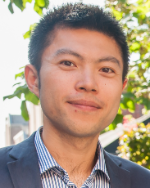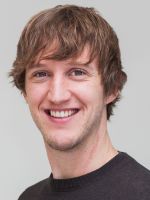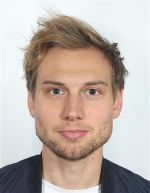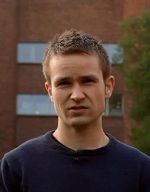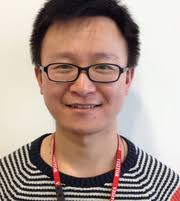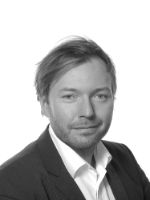Events - Page 23
Cedric Wieland, Durham University
Weekly Theory Seminar.
Cand. Scient. Fred-Johan Pettersen at Department of Physics will be defending the thesis
"Bioimpedance as a tool in Cardiac resyncronisation therapy"
for the degree of PhD
Doctoral candidate Cand. Scient. Fred-Johan Pettersen at Department of Physics will give a trial lecture on the given topic:
"Bionics in biomedical engineering. An overview over the field and the biotechnical issues."
Master of Science Chengxin Zhao at Department of Physics will be defending the thesis
“A radiation tolerance study of the ALICE TPC Readout Control Unit 2”
for the degree of PhD
Doctoral candidate Chengxin Zhao at Department of Physics will give a trial lecture on the given topic:
"Machine/Deep Learning and Neural Nets — Important techniques valuable for analysis of LHC experiments"
Mauro Valli, INFN Rome
Weekly Theory Seminar, and also part of the seminar series of the Strategic Dark Matter Initiative.
Jan Heisig, RWTH Aachen
The origin and nature of the dark matter in the Universe is one of the most pressing questions in fundamental physics. The combination of particle physics and cosmology has proven to be a successful avenue leading to the well-established theory of big bang nucleosynthesis that explains the primordial abundances of light elements. In the similar manner an extrapolation to even earlier times in the Universe has led to the WIMP (Weakly Interacting Massive Particle) freeze-out paradigm - one of the best motivated explanations of the dark matter relic abundance measured today. However, despite an enormous experimental effort no conclusive hint for WIMPs has been found, putting pressure on the WIMP dark matter explanation. In this talk we examine new avenues beyond the standard WIMP picture. We show that scrutinizing the well-known co-annihilation scenario and dropping the commonly made assumption of chemical equilibrium between co-annihilating partners offers new phenomenological possibilities. By solving the full coupled set of Boltzmann equations we find solutions that accommodate the measured dark matter density while requiring very small couplings that are in accordance with current null-results in WIMP searches. [continued below]
(The slides will be available here)
Master of Science Jonas Gliß at Department of Physics will be defending the thesis
"Passive UV remote sensing of volcanic sulphur and halogen emissions"
for the degree of PhD
Doctoral candidate Master in Physics Jonas Gliß at Department of Physics will give a trial lecture on the given topic:
"Effects from ash and aerosols in volcanic plumes on SO2 emission measurements, in specific using UV-cameras".
Thomas Konstandin, DESY
I will give an overview over the potential impact of (recent and future) observations of gravitational waves on cosmology and particle physics. This ranges from the measurement of the equation of state of QCD and the Hubble expansion parameter to (black hole) dark matter and inflation. I will dwell a little bit more on the connection to cosmological phase transitions that are mostly interesting to future space-based gravitational wave observatories.
(The slides will be available here)
Master of Science Riccard Andersson at Department of Physics will be defending the thesis
"A Machine Protection Risk Management Method for Complex Systems"
for the degree of PhD
Doctoral candidate Master in Physics Riccard Andersson at Department of Physics will give a trial lecture on the given topic:
"Imaging proton beam diagnostics, with emphasis on the target imaging system of ESS"
The Strategic Research Initiatives DIATECH and REALOMICS will present status and their plans for the future.
Master of Science Tore André Bekkeng at Department of Physics will be defending the thesis
"Development of a miniaturized multi-Needle Langmuir Probe system for in-situ measurements of electron density and spacecraft floating potential"
for the degree of PhD
Doctoral candidate Master in Physics Tore André Bekkeng at Department of Physics will give a trial lecture on the given topic:
"The low Earth orbit radiation environment and its effects on spacecraft electronics."
Ankit Beniwal, University of Adelaide
In this talk, I will present our study of the scalar singlet model. In particular, I will discuss the potential probes for electroweak baryogenesis in this model via collider searches, gravitational wave and direct dark matter detection signals. I will show that a large portion of the model parameter space exists where the observation of gravitational waves would allow detection while the indirect collider searches would not. This will motivate my ongoing study of the extended scalar singlet model with a fermionic dark matter candidate.
(The slides will be available here)
The International Conference on new Frontiers in Physics aims to promote scientific exchange and development of novel ideas in science with a particular accent on interdisciplinarity.
August 17-26 | Crete, Greece
Luca Visinelli, NORDITA
Weakly interacting massive particles (WIMPs), which are among the best motivated dark matter (DM) candidates, could make up all or only a fraction of the total DM budget. We consider a scenario in which WIMPs are a subdominant DM component; such a scenario would affect both current direct and indirect bounds on the WIMP-nucleon scattering cross section. In this paper we focus on indirect searches for the neutrino flux produced by annihilation of subdominant WIMPs captured by the Sun or the Earth via either spin-dependent or spin-independent scattering. We derive the annihilation rate and the expected neutrino flux at neutrino observatories. In our computation, we include an updated chemical composition of the Earth with respect to the previous literature, leading to an increase of the Earth’s capture rate for spin-dependent scattering by a factor of 3. Results are compared with current bounds from Super-Kamiokande and IceCube. We discuss the scaling of bounds from both direct and indirect detection methods with the WIMP abundance.
(The slides will be available here)
Master of Science Jiantuo Gan at the Department of Physics will be defending the thesis Synthesis and Characterization of Cu2O/ZnO Heterojunctions for Applications in Thin Film Solar Cells for the degree of Ph.D.
Master of Science Jiantuo Gan at the Department of Physics will give a trial lecture on the given topic: "Chemical gas sensors based on ZnO"
Master of Science Michael Heere at the Department of Physics will be defending the thesis "Fundamental investigation of reaction pathways for hydrogen sorption in selected borohydrides" for the degree of Ph.D.
Master of Science Michael Heere at the Department of Physics will give a trial lecture on the given topic: "Will hydrogen be tomorrow's fuel?"
M.Tech. Nishant Malik at the Department of Physics will be defending the thesis Metal Thermocompression Bonding for MEMS for the degree of Ph.D.
M.Tech. Nishant Malik at the Department of Physics will give a trial lecture on the given topic: "The History of MEMS Technology - Past and Present"
Master i fysikk Andres Spicher at the Department of Physics will be defending the thesis Multiscale characterization of plasma irregularities in the polar ionosphere using in situ measurements for the degree of Ph.D.

